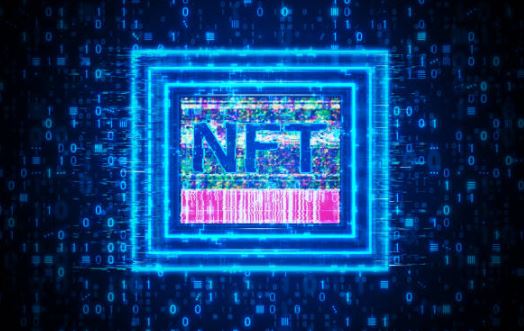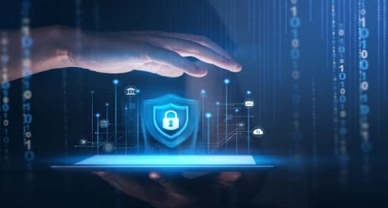Protection of Non-Fungible Tokens in Vietnam
Introduction
NFTs (Non-fungible token) are digital assets that represent tangible or intangible items, built on existing or newly-created blockchain networks. They can be a digital depiction of anything, including real estate, hotel bookings, tunes, artwork, and game objects. Since each NFT has a unique encoding, unlike cryptocurrencies with fungible properties, its denomination is based on the quantity and uniqueness of each item.

For instance, a person may spend some cash to purchase a brand-new NFT piece of art from an artist. The candidate will obtain a certificate file right away confirming that they—and they alone—now possess ownership of this digital creation. Similar to a typical tangible artwork, the artist has the entire right to utilise this NFT and may resale it for whatever price they see fit.Although NFTs have been around since 2014, along with the development of blockchain and cryptocurrencies, it is only in the last few years that this type of digital asset has exploded in popularity, especially in the field of arts and entertainment. Recently, the NFT market has witnessed the participation of many artists from various fields, from amateur to professional, and a variety of high-value digital works.
As a result, each unit of cryptocurrency is represented by a single block on the blockchain, which is replicated and certified countless times during each new transaction. As a result, it is impossible to change the initial entry on the blockchain and thereby change the value or nature of the cryptographic token it represents. Cryptocurrencies use this technology to ensure that each unit of currency is unique and non-reproducible.
However, not all tokens are NFTs, and many tokens represent assets other than just those connected to IPRs, such as cryptocurrencies. Tokens are not currently accepted in Vietnam as property or, if the asset is money, such as bitcoin, as a legitimate form of payment.
The usage of tokens, such as cryptocurrency, that represent assets that constitute money is not permitted by law. Any payment instrument that is not expressly permitted is considered an illicit payment instrument, according to Decree 101. Cheques, payment orders, authorised payment orders, collection orders, authorised collection [encashment] orders, bank cards, and other payment instruments as specified in State bank regulations are among the specific payment instruments that are permitted. Tokens have not yet been specifically acknowledged by the SBV as a legitimate form of payment in Vietnam; in fact, it has been made clear that cryptocurrencies are not recognized as such. The Civil Code states that property encompasses both movable and immovable items as well as money, precious paperwork, and property rights. Immovable property and movable property may be existing property or off-plan property.
Although tokens, whether in the form of a cryptocurrency or another representation of money, cannot be used to make payments, it is likely that they will be regarded as property. Although the definitions of property under the Civil Code do not directly mention the digital representation of assets, it is likely that a token constitutes a property right. When it comes to NFTs, the token is a distinct digital address that stands in for a particular asset and grants the NFT owner sole ownership of the asset it represents. The art industry is where this has advanced the greatest, with NFTs that stand in for individual, one-of-a-kind works being sold and then being owned by the purchaser.
However, as it is only a distinctive signature that serves as a representation of the underlying artwork, the token itself has no property rights. The artwork may be protected by copyright and IPRs, but the token used to represent it is only an address on a blockchain and has no personal IPRs of its own. However, the recent auctions of NFTs representing artwork that reached several million dollars show that the rights in the NFT can be valued in monetary terms. This implies that they might qualify as property under Vietnam’s Civil Code’s concept of property rights.
The use of blockchain technology, which underpins cryptographic tokens, has the potential to completely transform a number of areas of the global economy. Tokens themselves must be distinguished from the assets they stand in for, though. In the case of NFTs, they frequently constitute real IPRs that can be protected against infringement and that may be enforced. The NFTs themselves do not, however, acquire the same rights as the IPRs to which they are linked as a result of this. Cryptocurrency tokens, on the other hand, have no intrinsic value besides the value associated with the usage of processing power and the price that someone is prepared to pay for them.
Conclusion
Tokens continue to be mainly unregulated in Vietnam. Even though using cryptocurrencies to make payments is presently against the law, the Vietnamese national bank is looking into the prospect of doing so within the next five years. Although the underlying assets, namely IPRs, can be protected under current intellectual property rules, NFTs are entirely uncontrolled. However, it is still unclear how the tokens themselves should be handled under Vietnamese law. The list of FinTech to be included in the regulatory sandbox that was proposed under the previous prime minister includes blockchain technology. However, there hasn’t been any more indication that the administration or relevant departments are prepared to deal with the growing problems related to cryptocurrencies, NFTs, and cryptographic tokens in general.
Author: Tanya Saraswat, in case of any queries please contact/write back to us at support@ipandlegalfilings.com or IP & Legal Filing.


